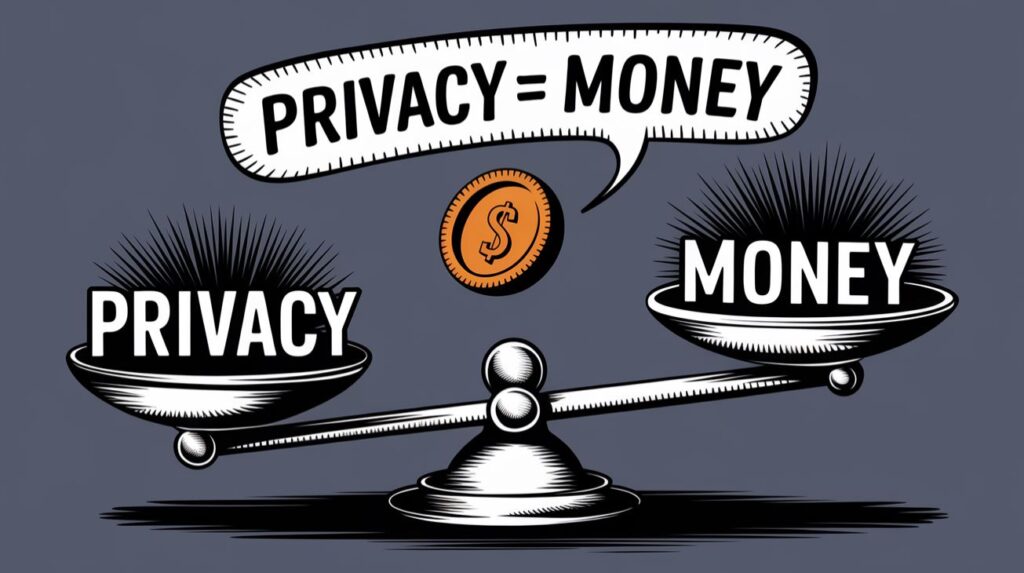Whenever users share their personal data online (either through website cookies, by filling out a form, or by clicking on a link), along with hope, fear lingers at the back of their minds for a little while longer.
Most of the Gmail users have received this notification (at least once in their lifetime) from Google’s Password Manager that read:
“Some of your saved passwords were found in a data breach from a site or app that you use.”
It means the websites they signed up at have unfortunately undergone password breaches. And most users usually use a common password to sign up or create new accounts on multiple websites. But are the users only the ones at fault? Not the organizations?
Let me bring a high-profile data breach that made the headlines in 2023 to your notice. It came in the form of a file transfer tool called MOVEit. Around 2600+ organizations, including multiple federal agencies, were affected by it, and over 85 million users were impacted.
All of this led to a great loss of customers’ data and privacy. No matter which organization it happens with, they are bound to lose their credibility and the trust of their customers. Lest we forget, the financial loss of data breaches is an unforgettable experience for businesses. More so, the costs are indirect and hidden. That’s one of the reasons why businesses fail to acknowledge these costs. With each breach, the value of privacy gets diluted.
Data, which used to be a byproduct of digital communications on the Internet, is now considered an entity that needs to be safeguarded. The cost of data breaches is restricted to penalties in the form of financial losses as well as intangible costs such as loss of reputation, reduced customer trust, and interruption of business in the future. Therefore, privacy is becoming a new value necessary to sustain competitive superiority and trust in a business among online shoppers.
In this blog, we will discuss the hidden costs associated with data breaches, along with the financial losses. We will also emphasize why businesses must focus on the importance of users’ privacy. So, let’s dive right in.
What is the Significance of Privacy in Today’s Digital World?
According to a survey by the Pew Research Center, 79% of Americans are worried about their privacy, and they have read or heard about how companies use their personal information. When you see the changes in the digital environment, you realize a dire need for data protection has become more significant than ever. The public is experiencing increased attentiveness to how their data is gathered, stored, and utilized, and therefore, it has shed considerable light on the issue of privacy. That is why privacy is gaining increased attention from the public, while businesses have started to consider it a primary factor rather than an additional concern.
Moreover, Gartner predicts that nearly 75% of all people will have their data protected under modern privacy regulations like GDPR and CCPA, further emphasizing the importance of privacy in the digital age. Therefore, companies that actively protect data are likely to gain and retain customers, and organizations that do not effectively protect data may lose the market.
Is Privacy the New Currency for Businesses?
Here are three different ways in which data breaches can cost your business.
-
Direct Financial Costs: The Immediate Impact
It comes in the form of fines and penalties incurred by privacy regulators, such as the General Data Protection Regulation (GDPR) in Europe and the California Consumer Privacy Act (CCPA) in the US. Your business may also have to bear the cost of notifying customers, clients, stakeholders, and regulatory bodies about the breach through postage, phone calls, and digital communication.
-
Indirect Costs: Beyond the Obvious
Data breaches can severely damage your company’s reputation and harm customer relationships. There is no denying that when customers’ personal or financial data is leaked online, they lose trust in a company’s ability to protect their data. This will indirectly lead to a loss of business opportunities. These data breaches may also hamper your day-to-day operations. Integrating secure cloud fax and document solutions can provide an extra layer of protection for your sensitive communications. By leveraging these technologies, you not only streamline your document handling but also reinforce your commitment to data security.
-
Long-Term Consequences
Data breaches can have a lasting impact on your business if it is publicly listed or has multiple stakeholders. Your stock prices may decline, damaging your brand name for years. Your business might also find it difficult to attract and retain top talent. Your employees may feel insecure about their company’s future and leave.
What are the Hidden Costs of Data Breaches?
Data breaches also carry some hidden costs. Here are the reasons why privacy is deemed to be the new currency.
-
Businesses face a competitive disadvantage in the market.
Data breaches don’t just cost you financial losses. However, the loss of reputation is more severe when you look at it from the perspective of loss of business opportunities. Your customers will start turning to your competitors, and it couldn’t get any worse. Your competitors will use this data breach to their advantage and attract your customers and clients.
Furthermore, when companies are breached, they may take time to recover while market competitors who invest much in cyber security and protective measures are advancing and gaining market advantage. A company perceived to be careless with customer data may have difficulty defending its market share and, consequently, has to fight harder for new contracts, partnerships, and related market opportunities. Simply put, a breach compromises the competitive balance that was in place until the moment of a breach.
-
Regulatory scrutiny and future compliance will cost you a lot.
A data breach is likely to attract the attention of regulatory authorities. They can impose stricter scrutiny and oversight. Your business may face ongoing investigations and audits. You will need additional resources to get through all this. Legal expenses will soar high. You will need new security measures, technologies, training programs, and more.
For example, recent regulations such as the CCPA and GDPR have set high standards for data protection, meaning that businesses have to update their security practices from time to time. This constant compliance is expensive and includes updating confusing policies and developing, implementing, and monitoring new security technologies, which puts pressure on companies.
-
You’ll have to bear customer acquisition and retention costs.
Trust is a huge factor in determining a customer’s perception of your brand. When a data breach occurs, it can be difficult to acquire new customers. You must spend more than usual on marketing efforts and advertising campaigns, and your customer retention strategy will need a revamp.
Customer loyalty can also be rather a problem after a security breach. Organizations will have to offer several incentives, such as loyalty programs, discounts, and other gimmicks, to avoid customers dumping their services, e.g., switching from one telecom company to another due to increased competition. Also, they may need to provide customers with free credit reporting or identity theft protection to compensate them for their time working with the firm, which will only contribute to the overall cost.
Key Takeaways
Privacy protection is no longer an option but a necessity that has become an integral aspect of the strategic planning of various business entities. Experts at Mavlers believe that if a company wants to sustain a long-term position and minimize the risks of losing its position to competitors, the latter should allocate resources toward privacy protection and data security.
Mavlers is a new-age martech agency that maintains privacy standards and takes precise security measures to protect businesses while working on their projects. These measures may take precedence when it comes to improving the overall strategy, besides identifying and preventing the hidden costs of data breaches that might be incurred in the long run. It will strengthen and create the basis for long-term market relations and your company’s growth.


